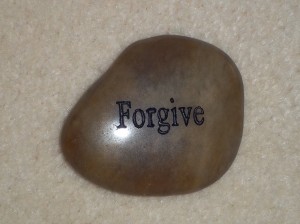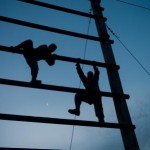I wasn’t surprised that the elders often profess a very deep faith in God. But I was struck by the degree to which they al so stressed tolerance for the beliefs of others. Over and over, they reported that a spiritual life is important, but the form it takes is up to you.
so stressed tolerance for the beliefs of others. Over and over, they reported that a spiritual life is important, but the form it takes is up to you.
Grace, 84: Well, it all depends on your denomination. Regardless of whether we bow to the east or west or whatever, there’s only one guy up there. We just have to have that faith. Faith gets difficult sometimes because we’re a species that likes instant gratification and solutions, and life is not about that. So we have to have faith. Also, don’t do wrong things for the sake of religion.
Ruth, 83: My parents were religious Jews, nothing Orthodox like that, but they observed the Sabbath and the meat was Kosher, you know. But we always had Christian friends, we had Jewish friends. My parents weren’t that tight, you know, they accepted anybody- “I don’t care what you are, you’re a nice person.” Thank you Mama and Papa, because this is what they taught me. The thing is that if there’s a God, there’s only one God. There can only be one God. And everybody prays in a different way. Tolerance is very important. Especially since the way that I grew up, and the fact that we had Christian friends.
Oscar, 76: Well, I have very strong feelings about my faith but I would not impose them upon other people, that’s strictly a one on one decision between them and God or whatever they choose to worship. I observe one school of thought and that’s very real to me and it would be up to everybody else to come to that same decision or a different one, so they would choose. But I think that everybody should believe in, preferably what I believe in, but then that’s not likely. But you should have something to center your life on, to sustain you.
Juanita, 71: We all have to believe in something, I think, and whether you’re Catholic or Protestant, it doesn’t really matter to me, there’s God. And how you get to Him through Catholicism, Judaism, it really doesn’t matter, but just to believe in something. We just didn’t appear, you know? I think faith is important because we have to realize there is a higher being, just look around, look at life itself, so everybody should have something to believe in.
Among the 1200 elders we interviewed for the book 30 Lessons for Living, only a small number had no use for spirituality or religion; faith of some kind was seen as a key to happiness by almost everyone. But what seems to grow in old age is a sense of tolerance for others’ beliefs, and a sense that there are many paths to spiritual fulfillment.
 older people are likely to regret, she told me:
older people are likely to regret, she told me:






